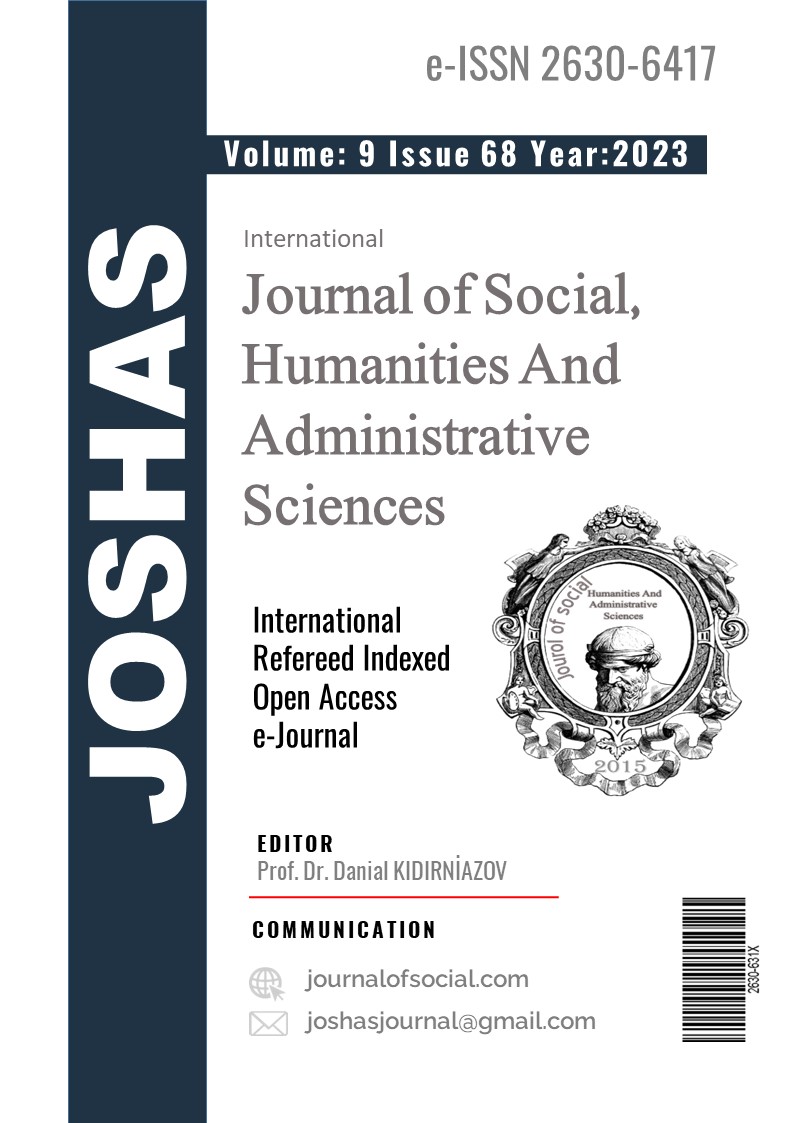Konuta Ekonomik Erişebilirlik: Türkiye'de Gelir, Faiz Oranları ve Konut Fiyatları Üzerine Bir Değerlendirme
Author :
Abstract
Konuta ekonomik erişebilirlik, hem Türkiye'de hem de dünya genelinde her geçen gün önemini artıran bir konudur. Birleşmiş Milletlerin Habitat II raporunda belirtilen niteliklere - yeterli mekan, güvenlik, yapısal sağlamlık ve dayanıklılık, aydınlatma, ısıtma ve havalandırma, su temini, sanitasyon gibi - sahip konutlara ekonomik olarak erişebilmek, insanların sağlıkla kendilerini yeniden üretebilmeleri için hayati önem taşır. Ancak, hanelerin nitelikli konuta ekonomik erişimini engelleyen çeşitli faktörler bulunmaktadır. Ekonomik olarak konuta erişememe problemi, beraberinde farklı ölçeklerde sağlık sorunları getirebilir ve mevcut eşitsizliklerin geri dönüşü olmayan bir noktaya ulaşmasına neden olabilir. Türkiye İstatistik Kurumu verilerine göre, ülkemizdeki konut sahipliği oranı düşmektedir. 2002 yılında Türkiye'deki konut sahipliği oranı %73,1 iken, 2022 yılında bu oran %56,7'ye kadar gerilemiştir. Buna karşılık, adrese dayalı kayıt sisteminin uygulandığı ilk yıl olan 2007'den 2022'ye kadar geçen sürede, Türkiye'nin nüfusu yaklaşık 15 milyon artmıştır. Konuta ekonomik erişebilirlikte en yaygın kullanılan yöntem, hane gelirinin konut ihtiyacına olan oranıdır. Bu oranla ilgili farklı görüşler olsa da, genel kabul gören oran gelirin %30'u olmaktadır. Ayrıca, bazı araştırmacılar bu %30'luk dilime, kredi veya kira ödemeleri, evin faturaları ve iş yerine ulaşım için harcanan bedelleri dahil ederken, bazıları bu giderleri dahil etmemektedir. Sonuç olarak, hane gelirinin, konut giderlerinden daha yüksek olması beklenmektedir. Türkiye Cumhuriyet Merkez Bankası’nın verisine göre, Aralık 2010’da 100m2 bir evin ortalama fiyatı 101.500 TL iken bu bedel, 2022 Aralık ayına gelindiğinde 1.775.400 TL’ye yükselmiştir. Konut fiyatlarındaki çarpıcı yükselişin konuta ekonomik erişebilirlik üzerinde ciddi bir etkisi olduğu aşikardır. Konuta ekonomik erişebilirlik, sadece haneler için değil, toplum için de bir sorundur ve toplum hayatını etkilemektedir.
Keywords
Abstract
Housing affordability is an issue that is gaining importance day by day, both in Turkey and globally. As stated in the United Nations' Habitat II report, having economic access to housing with qualities - such as adequate space, security, structural integrity and durability, lighting, heating and ventilation, water supply, and sanitation - is vital for individuals to healthily reproduce themselves. However, there are various factors that hinder households from economically accessing quality housing. The problem of not being able to access housing economically can bring along health issues on different scales and can lead to irreversible points of existing inequalities. According to data from the Turkish Statistical Institute, the rate of homeownership in our country is declining. While the homeownership rate in Turkey was 73.1% in 2002, it has decreased to 56.7% by 2022. In contrast, from 2007, the first year the address-based registration system was implemented, to 2022, Turkey's population has increased by approximately 15 million. The most commonly used method in housing affordability is the ratio of household income to housing needs. Although there are different opinions regarding this ratio, the generally accepted rate is 30% of the income. Furthermore, some researchers include expenses such as credit or rent payments, household bills, and transportation costs to work in this 30% bracket, while others do not. In conclusion, it is expected that household income should be higher than housing expenses. According to data from the Central Bank of the Republic of Turkey, in December 2010, the average price of a 100m2 house was 101,500 TL, and by December 2022, this amount has risen to 1,775,400 TL. The striking increase in housing prices clearly has a significant impact on housing affordability. Housing affordability is not just an issue for households but also for society and affects community life.





